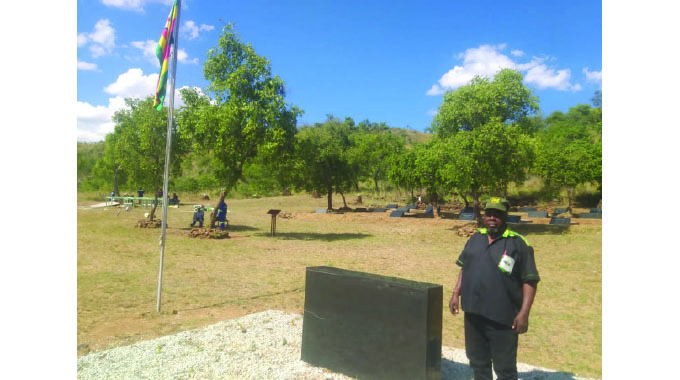Pensioners’ ever receding dream

Elliot Ziwira Senior Writer
Mudhara Musumare was an astute man. If there was one thing he was wary of, it was being caught unawares, thus he would take every opportunity to invest for that rainy day he knew would surely come.
There was a phrase he was fond of: “Plan your life, plan,” he would tell his children, friends, relatives and whoever was within earshot. Indeed, he was a planner, and made sure all his insurance premiums were up to date, and that his bank book was handy. The bank book was his pride, and he often wondered how anyone would hazard a life without any form of savings.
Having dedicated 33 years of his life to Carnaud MetalBox (Pvt) Limited, the only company he had ever worked for, having joined at the age of 19, Mudhara Musumare, as he was affectionately known, retired on medical grounds in November 1995 at 52.
The company generously rewarded him for his loyalty, and the National Social Security Authority (NSSA) did not disappoint either. Thus, well set for his mudyandigere, the pensioner’s dream, he retreated to his rural home in Murehwa in January 1996.
Because he cherished the day he would take a break from the hustle and bustle of city life, Mudhara Musumare had built himself a beautiful four-roomed house, with fowl runs and cattle pens ready for the huge projects he had in mind.
As a pensioner, he was the envy of the community, since he exuded chirungu chega chega (the good life), with cash at his disposal. To top it all, he was a landlord.
Since he had been under the weather for some time now, the enthusiastic pensioner showed signs of fatigue, although he continued to soldier on for his family’s sake.
He had invested his pay-out lump sum in livestock and farming, ready for the long haul, but by the end of the harvesting period in May 1996, Mudhara Musumare began to show signs of giving up.
In August 1996, he passed on, leaving behind a young wife and seven children, the youngest of whom was barely seven-years-old.
His family was devastated.
After working for 33 years, one would be expecting to take a well-deserved rest; burdened, yes, for life is burdensome, but rest nonetheless. The time for mudyandigere, where one is pampered by family, while at the same time spoiling their grandchildren on that “golden nest” put aside over many years of toil, is every pensioner’s dream.
For Mudhara Musumare 10 months was all he could get, and it wasn’t rest after all, for he kept on toiling. With the retirement age set at 65, he beat it by 13 years, but still he could not live to that supposedly golden age — 65.
When he passed on, he left behind a 40-year-old widow —a housewife. Then started a long journey, where many rivers and mountain ranges had to be crossed. Mudhara Musumare, the effervescent planner, could not envisage a time he would leave his family to the vagaries of both nature and man. But that dream died with him, and with him it was interred.
Barely five years after his death whatever he had worked for, including his life assurance policies, began to show signs of lethargy, having been overburdened. The hyperinflationary environment of the period between 2003 and 2008 wiped out everything he worked for, leaving his widow with no choice but to stop bothering the NSSA people with regards to her stipends, which by then were way below the bus fare from her rural home to the nearest payout point.
Luckily for the family, Mudhara Musumare had a house in Glen Norah. Had it not been for that they would have become homeless the moment he retired.
Mudhara Musumare’s widow, Elizabeth (Gogo Musumare), is reliving the disaster of the hyperinflationary period that hit the country over a decade ago, which saw pensioners or their surviving spouses getting nothing to show for the many years of drudgery in the sooty factories, and has since retraced its paces. Now she gets a paltry $32 from the social security authority mandated to keep hunger at bay for her ilk, and the retinue of grandchildren that come with age.
She is not the only one, neither is her late husband’s story unique. There are thousands of them, pensioners and their surviving spouses, chasing the enticing mudyadigere to the ever receding horizon.
With pensioners getting $80 and their surviving spouses $32 from NSSA per month, one wonders whether the idea of pensions makes sense after all. The amounts barely cover bus fares for the majority of our senior citizens to access the stipends, yet those responsible for making investment decisions on their behalf live in opulence that shames the devil.
Millions of dollars are siphoned from pension funds, poor decisions are made, entire projects collapse, and when the economy is shaken, it is the pensioner who has to take the blow. There is no accountability as to how projects undertaken using pension funds are run; and no one is ever brought to book in the strictest sense of the phrase.
It is known that funds are invested in real estate, sometimes at huge losses because of lack of foresight, and in some cases at good returns, since property maintains value, but when revaluations are done they do not reflect in pensioners payouts. Even in such instances where the economy may be performing well, as was the case in the multi-currency era, pensioners are always hard done by.
If we all agree that economies fall, are given impetus to regrow, and possibly fall again, then why should one be asked to compulsorily contribute towards something he/she will never use, especially when the retirement age of 65, is way above life expectancy in Zimbabwe? Wouldn’t it be proper for contributors to get part of their pensions when the economy is performing well, or to compensate pensioners for the dry spell suffered?
When one contributes for 20, 30, 40 or 45 years in a performing economy, why then would he/she be punished for an inflationary environment that he/she in all essence, was told to prepare for as the rainy season?
There is need to overhaul the whole concept of social security for it to reflect on the reality of our situation. I for one wouldn’t mind contributing towards a fund that promises my family and I groceries through retrievable vouchers corresponding to what I would have contributed, instead of contributing the equivalent of 20 litres of cooking oil per month today, and recoup less than a litre as pension per month on retirement.
It would be worthwhile to know what exactly you would be contributing towards, instead of contributing blindly. The retirement age should also be revisited, seeing that if the pensioner is entitled to $80, and the surviving spouse to $32, basing on NSSA payouts, there is a discrepancy of $48, which is a rip-off, considering that most pension contributors do not live to see their 65th birthday. And if they do, they barely enjoy the benefits.
Government as the major employer should lead by example, and take pensioners back to the glory days of mudyandigere. There is also need to enforce compliance on the part of employers, who have a tendency to deduct pension contributions from employees, yet years running, they do not remit the money to authorised pension funds as required by the law. They hold on to the money, which legally is not theirs, and when pensioners seek recompense from pension funds and insurance firms, they are told that their employers are still to honour their end of the bargain.
Pension funds have become cash cows for many organisations, and the management, or mismanagement rather, of such monies is never questioned. And when storms hit, contributors are the ones to drown.
As a nation we should do more for our senior citizens, who desperately endure long hours in bank queues to withdraw the equivalent of a litre of fruit juice to quench the many years of thirst bottled up in their sweaty and scrawny bodies.







Comments